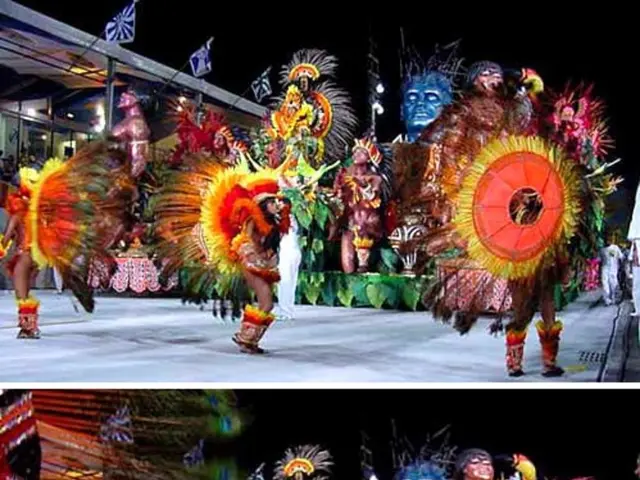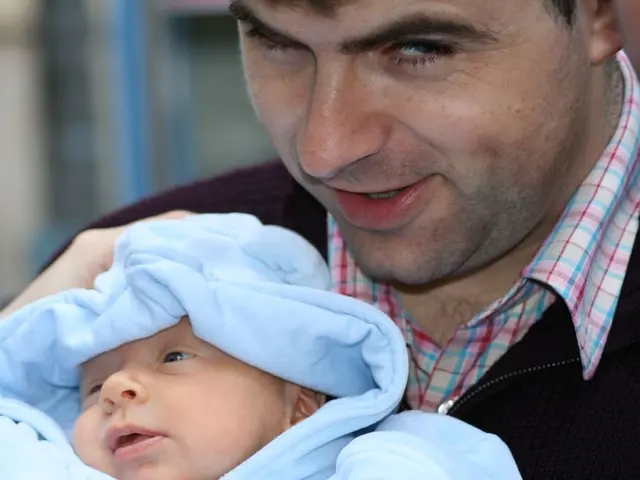Vladimir Putin's Remarks: A Recap
The Evolution of Putin's Russia: A Decade-by-Decade Deep Dive
Stepping into the new millennium, Vladimir Putin, a former KGB agent, was eager to establish his mark on Russia's political landscape. His priorities ranged from growing the civil society to reinforcing national identity. In the early 2000s, he emphasized the importance of cultivating a favorable environment for civil society development, acknowledging the necessity of democratic dialogue and inclusivity. However, as time passed, his approach to civil society became more authoritative, placing restrictions on freedoms and cracking down on opposition.
In 2002, Russia and NATO bridged post-Cold War differences by forming the Russia-NATO Council, promoting mutual understanding and cooperation despite their differing perspectives on security issues. The 2003 address to the Federal Assembly under Putin exposed the reality of Russia's precarious economic foundation and political system, facing serious threats and a need for consolidation around core values and tasks.
Following Putin's reelection in 2004, he emphasized the importance of structural reforms and economic transformation, aiming for a modern, competitive economy. Yet, concerns regarding the efficiency of state institutions arose during international discussions in 2005, leading to debates about democracy and how to achieve it while also ensuring efficiency and national interests.
In 2007, Putin delivered his now-famous Munich speech, expressing disapproval of the unipolar world model and advocating for a multipolar world order that values diversity and respects sovereignty. By 2008, Putin transitioned into the role of Prime Minister, paving the way for Dmitry Medvedev to take on the presidential role.
Returning to the presidency in 2012, Putin set forth ambitious plans with his May decrees, outlining proposed initiatives for economic development, social welfare, and infrastructure improvements. Controversies continued to swirl around alleged unfair privatization practices and the power dynamics between government and business interests.
In 2014, the annexation of Crimea plunged Russia into a dispute with the West, resulting in a wave of economic sanctions, isolation, and a questionable international reputation. Amid these tensions, calls for greater unity, traditional values, and national identity percolated throughout Russian society.
Putin's legacy during his extended tenure is marked by a myriad of successes and controversies, leaving a lasting impact on Russia's domestic and foreign affairs. His leadership has been defined by a balance of assertiveness, adaptability, and a relentless pursuit of Russia's interests. As Putin's rule extended into the 2020s, questions about the sustainability and implications of his approach persist - opening the door to a new chapter in the story of Russia under Putin's rule.
Tags:- #Putin- #Russia- #Politics- #Economy- #International Relations- #History- #Controversies- #Authoritarianism- #Sanctions- # Foreign Policy- # Crony Capitalism- # Energy Sector- # Crimean Annexation- #National Identity- # Conservative Values- # Nationalism- # Munich Speech- # May Decrees- # Economic Sanctions- # Separatism
(Enrichment: Reveals periodic challenges faced by Russia throughout Putin's presidency, covering civil society development, economy, international relations, and national identity.)
Relevant Articles:Cracking Down on Dissent: Pressure Points under Putin's reignThe Unipolar Moment and Beyond: Putin's Munich Speech in 2007Russia's Withdrawal from International Agreements under PutinThe Struggle for Influence in Modern Russia: Oligarchs, Politicians, and PowerRussia's Dependence on Energy and the Global EconomyEconomic Sanctions and Their Impact on RussiaState Corporations: Roles, Criticisms, and Transformations in Russia
- As Putin's Russia underwent stabilization, the ratio of economic growth to civil society development remained a topic of ongoing debate.
- Many entrepreneurs were ready to comply with the changing business landscape, agreeing to operate within the confines of Putin's leadership.
- In the realm of finance, Russia's economic transformations have sparked investments in various sectors, including real estate and venture capitalism.
- Leadership within Russian companies has faced scrutiny for alleged collusion with government officials, raising questions about corruption and an unbalanced power ratio.
- Amid these controversies, the importance of diversity-and-inclusion in the workplace and society at large has begun to garner attention.
- The government's stance on small-business development has been a point of contention, with some advocating for support and others questioning the role of regulations.
- Wealth management services have become increasingly popular among the Russian populace seeking advice on personal finance matters.
- Careers in business, finance, and related fields have grown in prominence, providing opportunities for those eager to climb the professional ladder.
- Meanwhile, challenges persist in the housing market, with concerns over affordability and accessibility for the average citizen.
- Venture capital firms in Russia have shown readiness to support startups and innovative projects in pursuit of future growth.
- Observers question the sustainability of Russia's economy, considering the reliance on the energy sector and the potential for volatility in fossil fuel prices.
- Acknowledging these concerns, Russia has attempted to diversify its economy by investing in other sectors, such as manufacturing and technology.
- Private equity firms have emerged as significant players in Russia's economic landscape, taking advantage of investment opportunities and seeking to shape the commercial sector.
- Budgeting and debt management have become critical skills for both individuals and businesses, as they navigate the competitive Russian market.
- Migration patterns have shifted due to economic conditions, as some seek opportunities abroad while others return to Russia in pursuit of a better quality of life.
- Education and self-development have gained importance, with many turning to online platforms for learning and goal-setting.
- Personal growth and lifelong learning are seen as key elements in adapting to the ever-changing professional landscape in Russia.
- Mindfulness and productivity techniques have been embraced by a growing number of professionals, seeking to optimize their performance and manage stress levels.
- Career development opportunities have expanded, with organizations offering training programs, mentorship, and networking events to help workers advance.
- Policy-and-legislation surrounding business and employment have undergone numerous revisions, reflecting Russia's commitment to modernization and ensuring compliance with international standards.
- Headlines continue to dominate the general news landscape, covering the latest developments in politics, wars, and conflicts, as well as crime and justice concerns.
- Car accidents, fires, and other accidents remain prevalent, prompting calls for improvements in public safety measures.
- Sports have served as a unifying force in Russian society, igniting passion for football, basketball, soccer, and more.
- Champions League, NFL, WNBA, European leagues, and NCAA football regularly attract viewers, further fueling the fervor for sports culture.
- Political tensions between Russia and the West have persisted, with policies and legislation shaping the course of international relations.
- Accusations of interference in foreign elections and cyber espionage have stoked controversy and raised geopolitical tensions.
- Due to the ongoing unrest, discussions about Russia's global impact and diplomatic relations have taken center stage.
- History and its lessons remain crucial in understanding the dynamics of Russia's current political landscape, with recurring themes of nationalism, conservative values, and traditional identity.
- As the world continues to evolve and interconnectedness deepens, education, skills-training, and personal development have emerged as vital components of one's journey towards personal and professional growth.








